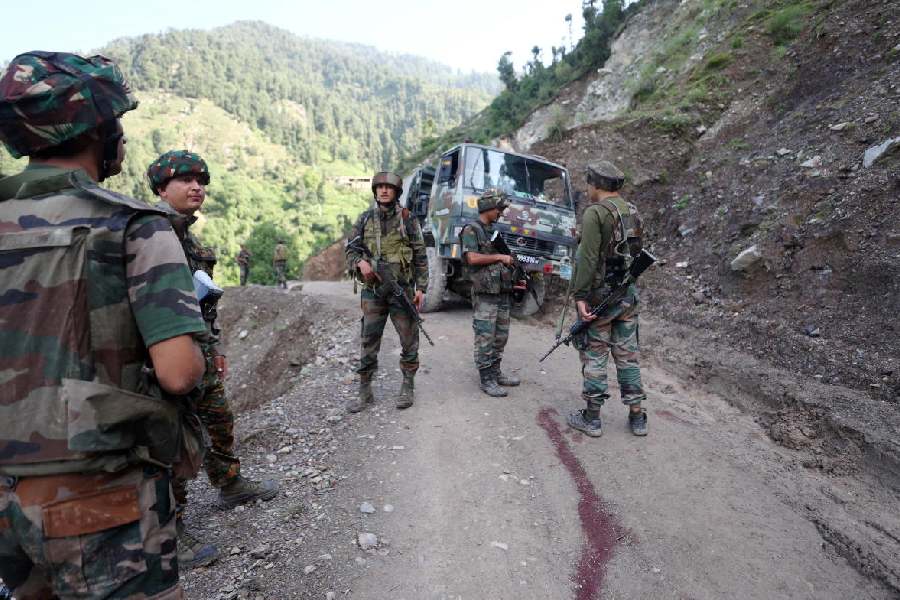The northeastern states that share a border with turbulence-stricken Bangladesh include Tripura (856 kilometre), Meghalaya (443 km), Mizoram (318 km) and Assam (a total of 262 km along two stretches). Of these, Tripura is practically surrounded by Bangladesh and although much of this border is fenced, there are areas and enclaves where the access from and into the neighbouring country is easy, keeping the Border Security Force personnel on high alert.
Given the present unrest wherein the spectre of infiltration has assumed an alarming stance, the additional director-general of the BSF’s eastern command held an operational conference in Calcutta with the inspectors-general of all frontiers under this command and reviewed the border situation. According to a press statement after the meeting, “detailed deliberations were held to further enhance border control, security and management. Besides, it was decided to continue the close collaboration with counterpart Border Guard Bangladesh.”
This was echoed by a senior BSF officer of the Tripura frontier. “We are holding meetings with our counterparts at all levels. The increased communication is basically to exchange information for prompt action at both ends. We are also having joint patrols with BGB along the international border and coordinating with all agencies and the state administration. There is heightened vigil along the border and village-level coordination meetings,” he told me.
The concern in states like Tripura is the possibility of influx, particularly of Hindus and supporters of the former prime minister, Sheikh Hasina Wazed, and her Awami League. Although the head of the new interim government, Muhammad Yunus, assured India of the protection of Hindus, people continue to throng the border to cross over, either with medical visas or clandestinely.
Meghalaya, too, has clamped night curfew along its border while Mizoram has restricted the movement of people by night. Tripura, which used to conduct a heartwarming flag-lowering ceremony at its border in Agartala, has now closed its international boundary with Bangladesh. There is also worry about the return of militant groups based in Bangladesh.
Travelling on a BSF border track along Bangladesh for nearly 30 km from Agartala to Kamalasagar (primarily fortified with barbed wire), I saw a single sentry at each post, armed with a rifle and a walkie-talkie, certainly no match for a gang of desperate smugglers or swarming infiltrators. Add to that the prospect of staring for hours at vast fields trying to decipher cows, drug smugglers or fleeing citizens while battling the vagaries of nature. Ill-equipped posts are soft targets.
One can also see BSF girl sentries ‘manning’ border posts. The force has inducted women because female offenders need to be frisked. But it is quite a job for both men and women in the force and, after sundown, it can only get worse. These girls are made of sterner stuff and are ready to defend the country’s borders with commendable zeal, but the threats loom.
On reaching Kamalasagar, which has a well-established border haat with traders from India and Bangladesh selling their wares, it is evident why an interaction with the neighbouring country is essential. In the 2023-24 fiscal, border trade raked in Rs 715.98 crore, according to data from the Tripura government. Last week saw brisk trading at Srinagar haat in South Tripura. All integrated check posts are functioning, the officer added.
On the flip side, as fleeing Bangladeshis assemble along the border, there are calls in Tripura for the boycott of Bangladeshi goods. One hopes the interim government in that country will function effectively and quell unrest, allowing our tense borders a semblance of normalcy.










